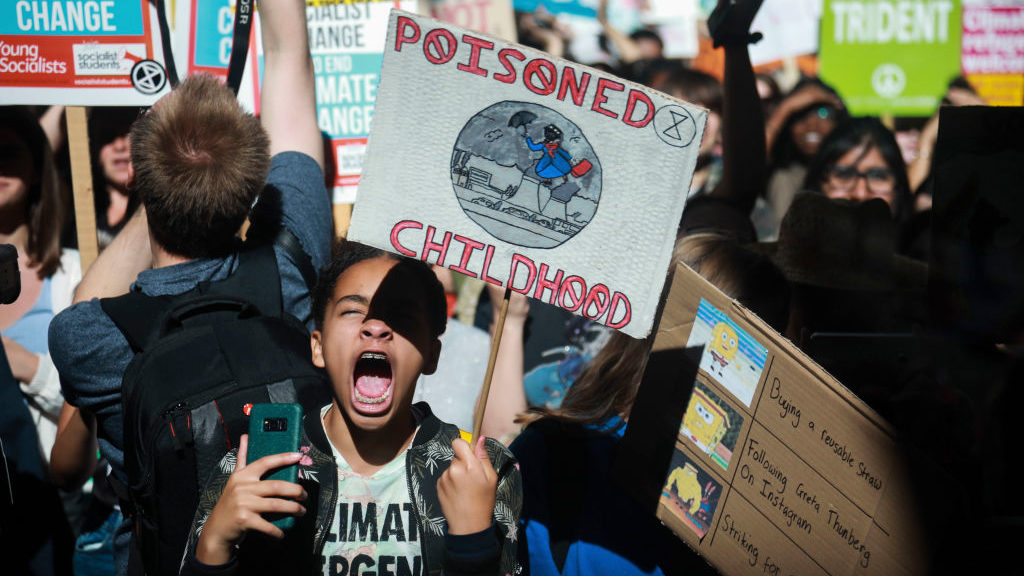One of the hobby horses that Richard Dawkins is fond of flogging is his claim that religious education is evil. Dawkins pops up around once a year to remind us that “forcing a religion on your children is as bad as child abuse.”
I thought of the evolutionary biologist when new research revealed that more than half of child psychiatrists in England are seeing young people who are depressed about climate change. In September the Royal College of Psychiatrists asked members who worked in the NHS whether they were noticing patients who were anxious about ecological issues. Child and adolescent psychiatrists, more than those working with other age groups, had seen a rapid rise in “eco-anxiety.”
The findings will come as no surprise to anybody who has worked recently in an English school. When I taught in one last year, I was initially taken aback by the solemn, gloomy, apocalyptic worldview of my students. When it came to climate change they had abandoned hope — “what’s the point sir” was a common refrain, “the world is going to be over in ten years anyway.”
Those students (and plenty of teachers) I encountered had fallen hard for the Greta account of climate change. This sees global warming not as an immense technical challenge to be solved, but as a moral, even metaphysical judgement on our species, rendered by forces that are running away from our control. This sense of impending doom has, understandably, dug a vast reservoir of fear in young people.
With great enthusiasm from the Mayor of London, Extinction Rebellion, pressure groups, and teachers themselves, these feelings where channelled last September into a series of climate strikes. One of the most unsettling parts of them was watching teenagers stage “die-ins” to show their anger at the climate emergency.
Strikes, protests and activism are not adequate responses to a world where China and India account for over a third of the world’s CO2 emissions between them. They raise the emotional temperature, without offering any constructive approach to the problem of rising temperatures. Deep down, I think plenty of teenagers are smart enough to know this, which is why so many of them are feeling anxious and depressed.
Three-quarters of teachers don’t feel like they’ve been adequately trained to teach students about climate change. In the absence of that training, it’s the most hopeless account of the issue that’s taking hold in English schools. “Forcing a religion” on children is not child abuse, but scaring the bejeezus out of them about the climate is close to it.










Join the discussion
Join like minded readers that support our journalism by becoming a paid subscriber
To join the discussion in the comments, become a paid subscriber.
Join like minded readers that support our journalism, read unlimited articles and enjoy other subscriber-only benefits.
Subscribe